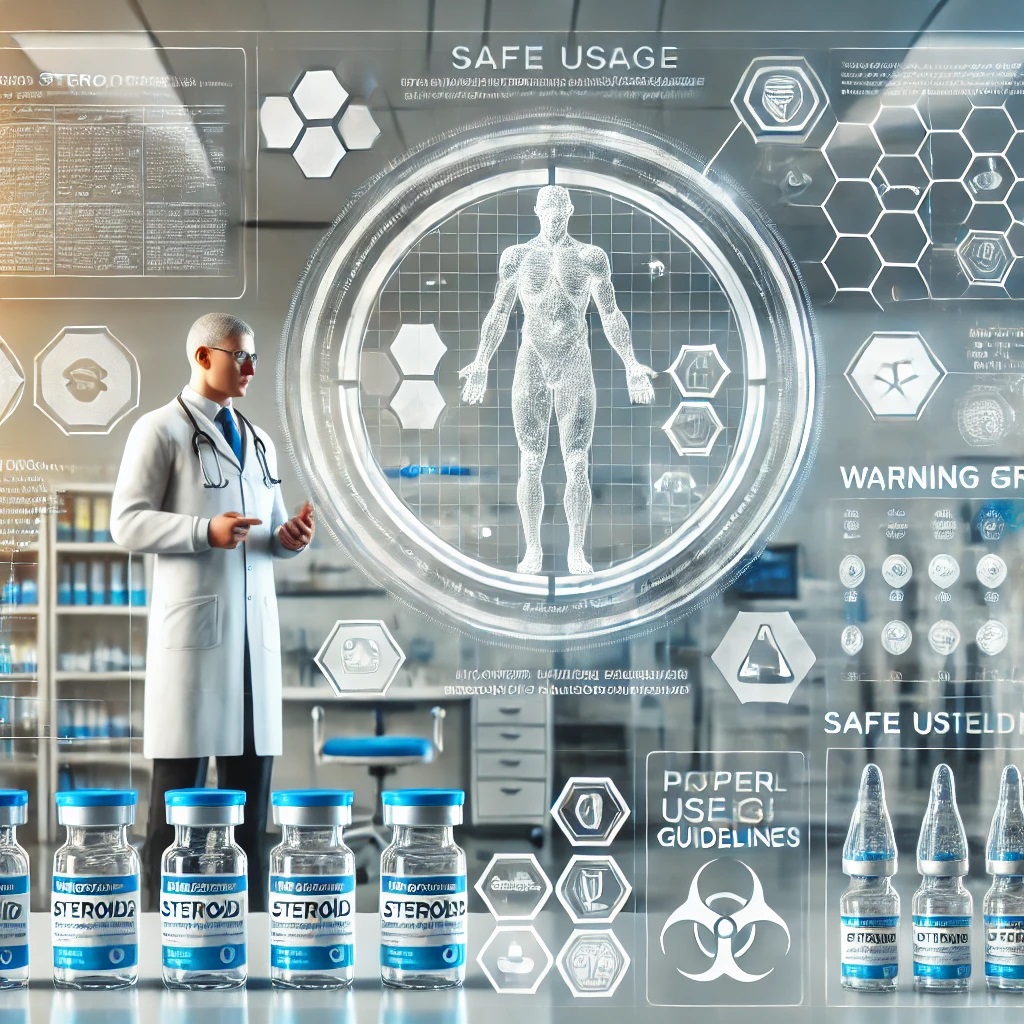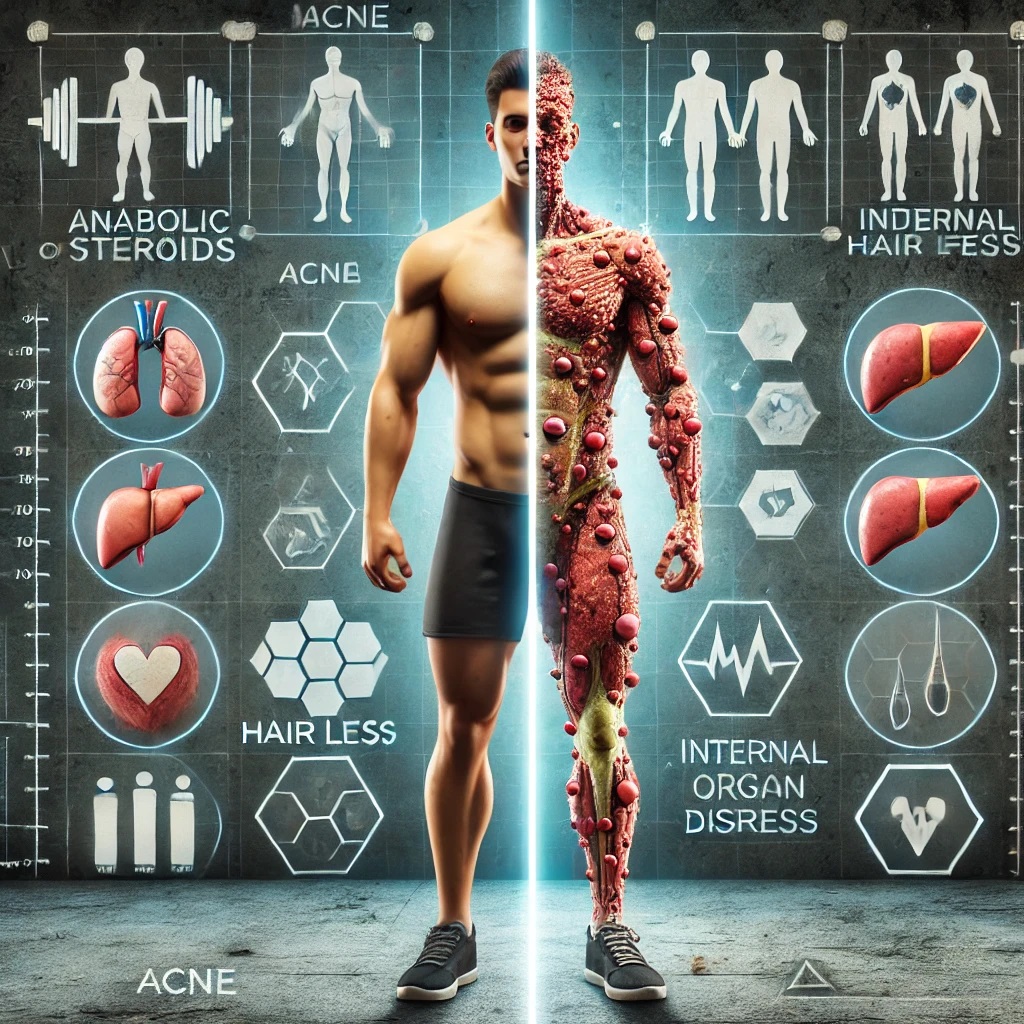How Safe is it to Take Steroids, and What Side Effects May Arise?
Using anabolic steroids for bodybuilding is a common practice among athletes and fitness enthusiasts. However, understanding the safety of steroids and potential side effects is essential before beginning any steroid cycle. This guide delves into the safety considerations and potential risks of anabolic steroid use.
What are Anabolic Steroids?
Anabolic steroids are synthetic compounds that mimic the effects of testosterone, the primary male sex hormone. They are often used by bodybuilders to enhance muscle growth, strength, and recovery. Although they can provide significant physical benefits, the potential for side effects raises concerns about their safety.
Is it Safe to Take Steroids?
The safety of steroid use depends on various factors, including dosage, cycle length, type of steroid, and individual health. While steroids can be used safely under medical supervision for certain health conditions, non-medical use carries higher risks, especially when taken in high doses or without professional guidance.
When used responsibly and with appropriate post-cycle therapy (PCT), some of the risks of steroid use can be managed. However, even low doses may cause side effects, making it important for users to be fully aware of the potential risks.

Common Side Effects of Steroid Use
While side effects vary depending on the specific steroid and individual, here are some of the most common side effects associated with steroid use:
1. Hormonal Imbalances
Steroids disrupt the body’s natural hormone production, leading to imbalances. This can result in testosterone suppression, leading to low energy, decreased libido, and mood changes post-cycle.
- Common Issue: Decreased natural testosterone production
- Solution: Implement post-cycle therapy (PCT) to restore hormone levels
2. Liver Toxicity
Oral steroids, in particular, are known to be hepatotoxic, meaning they can strain the liver. Prolonged or high-dose steroid use may lead to liver damage or elevated liver enzymes.
- Common Issue: Liver strain, elevated liver enzymes
- Solution: Limit cycle length, avoid alcohol, and take liver support supplements
3. Cardiovascular Risks
Steroids can negatively impact cholesterol levels, raising LDL (bad cholesterol) and lowering HDL (good cholesterol). This increases the risk of heart disease, high blood pressure, and other cardiovascular issues.
- Common Issue: Increased LDL and decreased HDL
- Solution: Maintain a heart-healthy diet, monitor cholesterol levels, and avoid long cycles
4. Acne and Skin Issues
Steroid use often results in oily skin and acne, particularly on the back, shoulders, and face. This is due to increased testosterone levels stimulating sebaceous glands.
- Common Issue: Acne and oily skin
- Solution: Practice good hygiene, use acne treatments, and avoid overuse of androgens
5. Gynecomastia
Gynecomastia, or the development of breast tissue in men, is a common side effect of steroids due to estrogen conversion. Steroids like testosterone can be converted into estrogen, leading to this side effect.
- Common Issue: Development of breast tissue in men
- Solution: Use anti-estrogens like Nolvadex or Arimidex during the cycle
Psychological Side Effects of Steroids
In addition to physical side effects, steroids can impact mental health. Increased testosterone levels can cause mood swings, irritability, and, in some cases, aggressive behavior, commonly referred to as “roid rage.”
- Common Issue: Mood swings, aggression, and irritability
- Solution: Maintain a balanced lifestyle, and consider professional guidance if experiencing severe mood changes
Long-Term Risks of Steroid Use
Long-term or chronic steroid use can have serious health implications. Prolonged use increases the risk of organ damage, including heart and liver complications. Additionally, long-term use may make it challenging for the body to resume normal testosterone production.
- Organ Damage: Long-term steroid use is associated with heart and liver complications.
- Testosterone Suppression: Permanent testosterone suppression can occur with long-term use, requiring ongoing medical intervention.
Safety Guidelines for Steroid Use
While steroid use carries inherent risks, there are ways to minimize these risks and use steroids more responsibly. Here are some safety guidelines for those considering steroid use:
1. Start with Low Doses
Beginners should start with lower doses to gauge how their body reacts to steroids. Gradually increasing the dose based on tolerance and experience can help prevent adverse effects.
2. Limit Cycle Length
Shorter cycles are less taxing on the body and reduce the risk of severe side effects. Limiting a cycle to 6-8 weeks, especially for beginners, is often recommended for safer use.
3. Include Post-Cycle Therapy (PCT)
PCT is crucial for restoring natural hormone production after a cycle. Medications like Clomid or Nolvadex are commonly used in PCT to help normalize testosterone levels.
4. Regular Health Monitoring
Regular blood tests to monitor liver function, cholesterol levels, and hormone levels can help detect any potential health issues early, allowing for adjustments in the cycle as needed.
Alternatives to Steroid Use
For those concerned about the risks of steroids, there are alternatives that can support muscle growth and performance with fewer side effects:
- Natural Supplements: Protein powders, creatine, and BCAAs can aid muscle growth without the side effects of steroids.
- Hormone Boosters: Some supplements naturally stimulate testosterone production, such as fenugreek and D-aspartic acid.
- High-Intensity Training: Advanced training techniques like supersets, drop sets, and progressive overload can maximize muscle growth.
Conclusion
Using steroids can enhance muscle growth and strength, but it’s not without risks. Awareness of potential side effects and following safety guidelines can help mitigate risks, but there is no way to completely eliminate them. Anyone considering steroids should weigh the benefits against potential health consequences and consult with a healthcare professional before beginning a cycle.
Tags: anabolic steroids side effects, is it safe to take steroids, risks of steroids, steroid safety, steroid side effects

